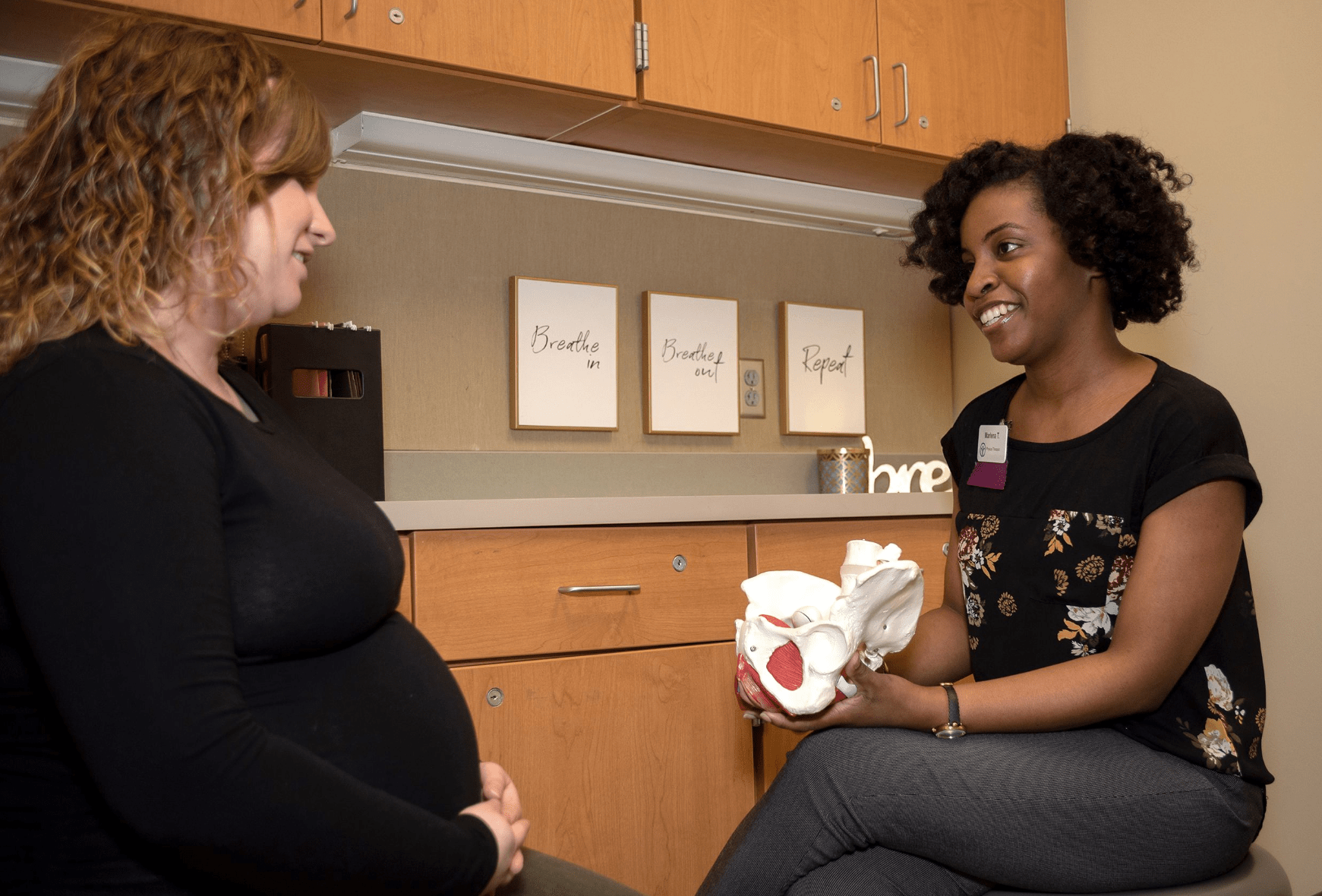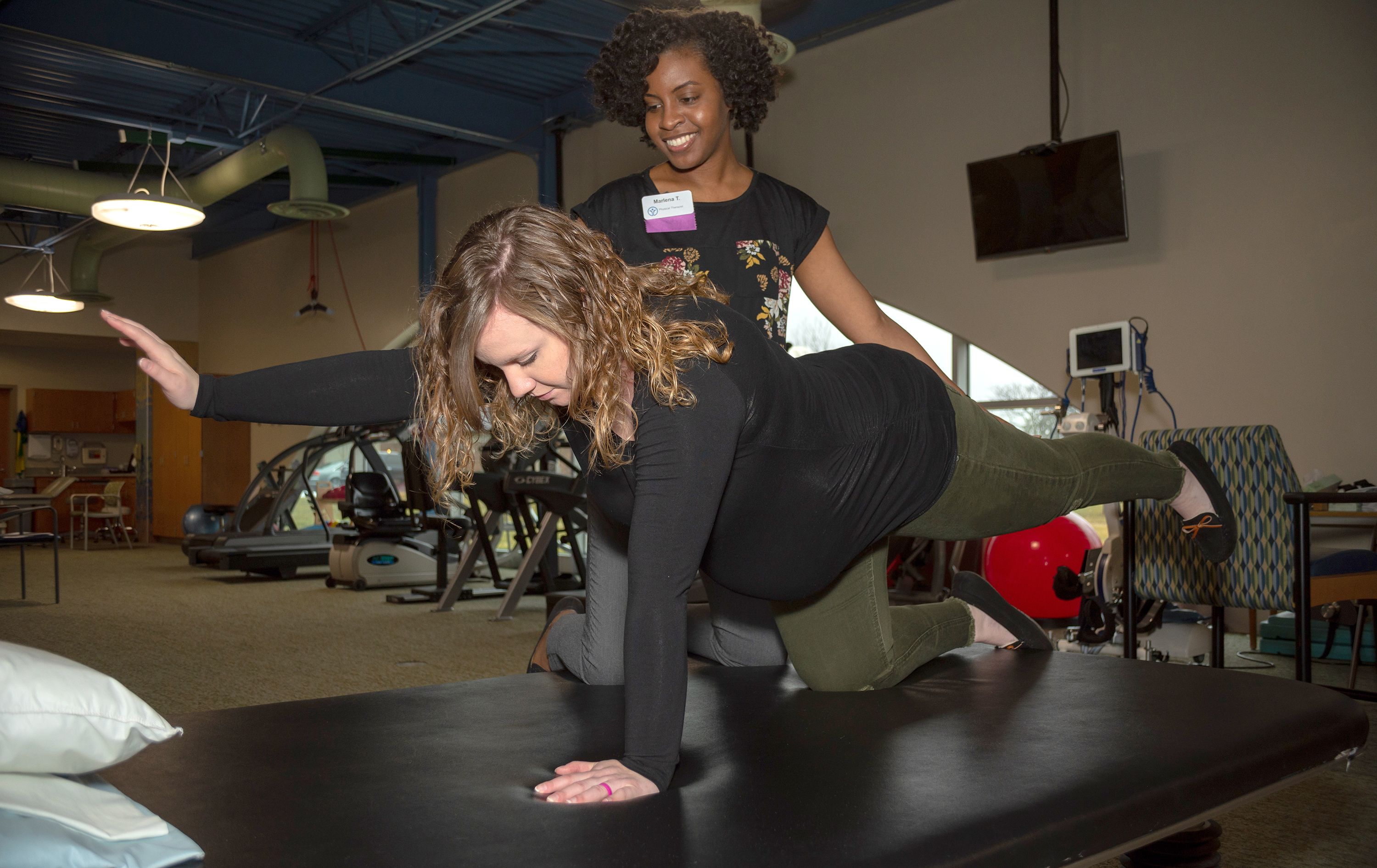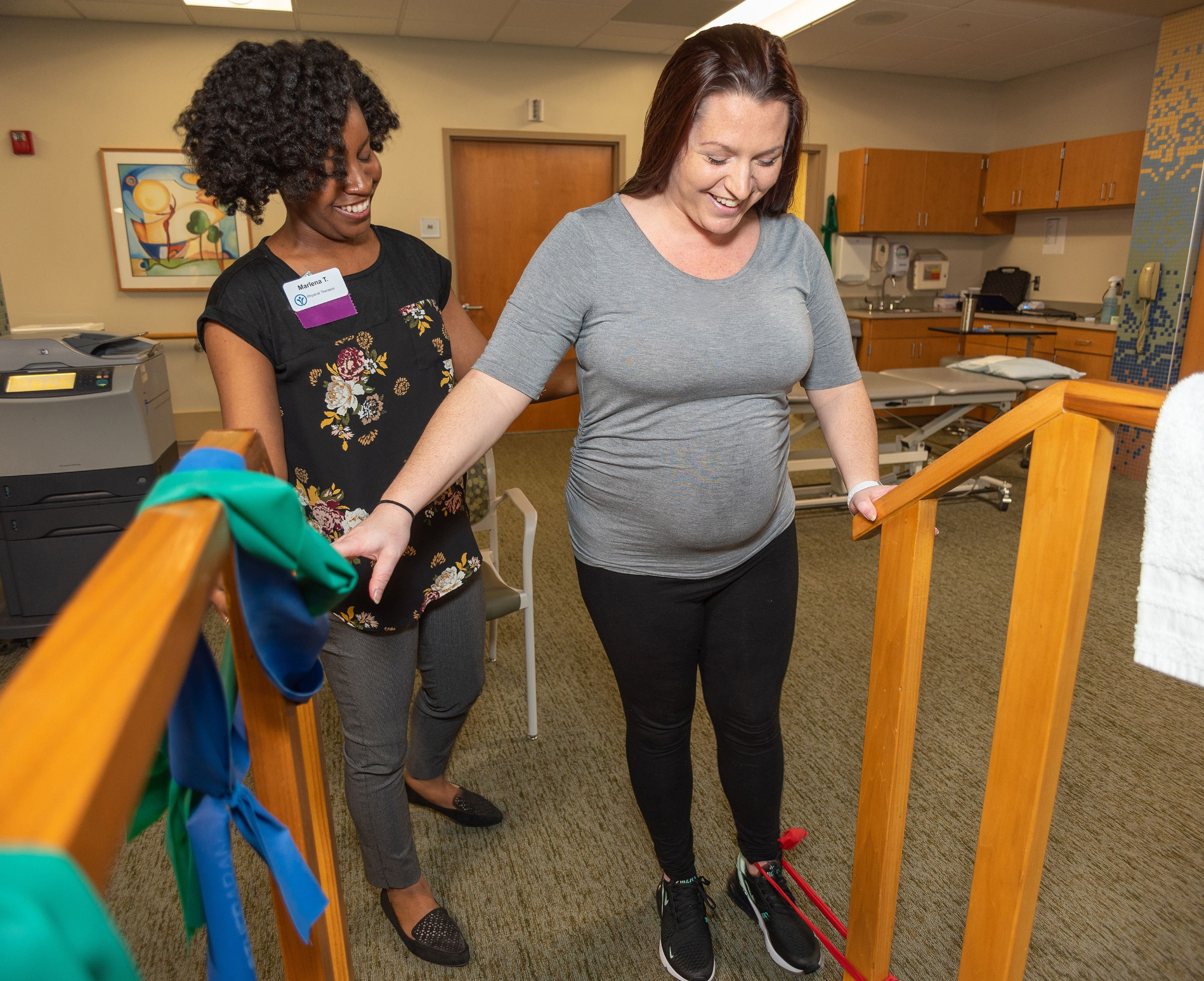Pelvic Floor Physical Therapy
What is the pelvic floor and why is it important?

The pelvic floor is a group of muscles that are located in the pelvis and help control urinary and bowel function, support pelvic organs, and are involved with sexual function. Your pelvic floor is like any muscle in your body and can become tight, weak, go into spasm, or have poor muscle coordination. If these muscles are not working properly, those important systems may not be working properly and can result in bowel and bladder issues or pelvic pain.
What is pelvic floor physical therapy?

Pelvic floor physical therapy (PT) is
a specialized therapy that focuses
on pelvic conditions and symptoms.
Many times, people with pelvic floor
issues live silently with conditions
due to embarrassment, shame, or
simply not knowing where to turn.
Individuals ignore symptoms or
make drastic lifestyle changes to
cope with challenges. Pelvic PT is an
effective way to manage or eliminate
symptoms and can be a key to
improving quality of life and
feeling normal.
Quick facts
- 25 million Americans live with urinary incontinence
- 1 in 3 reproductive-aged women experience pelvic pain
- Having a baby increases the risk of pelvic floor dysfunction
- 4 million Americans live with constipation
- Pelvic floor dysfunction often progresses if left untreated
Treatment sessions

A physical therapist specialized in
treating pelvic floor conditions will
assess you during an evaluation. The
evaluation may include examination
of your strength, range of motion,
muscle flexibility, posture, movement
patterns, pelvic and core stability, and
assessing the pelvic area if needed.
Treatments are one-on-one and
individualized to focus on your
concerns and meet your goals.
Since pelvic floor dysfunction can
affect anyone, children and men and
women of all ages and stages of life
can benefit from treatment.
Do you have these symptoms?
- Leakage of urine
- Urgency when you hear running water
- Frequent urination
- Urinary urgency
- Difficult/painful urination
- Constipation
- Leakage of bowel
- Prolapse
- Pelvic pain
- Sacroiliac (SI) pain
- Endometriosis
- Pain with intercourse
- Scar tissue
- Pre and postpartum conditions
- Post prostatectomy
- Post pelvic cancer treatment
Be your own advocate! If you would like to receive treatment for any pelvic floor symptom, ask your provider for a referral to pelvic floor physical therapy.
For more information on our physical therapy services, please feel free to contact us or call one of our outpatient rehab locations: Richmond (765) 983-3092; Eaton (937) 456-1195; or Connersville, (765) 827-7964.

